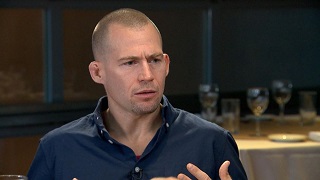Onafhankelijk van geboortedata
De Amerikaanse schrijver Atticus Lish werd geboren in 1972 in New York. Net als zijn vader, de invloedrijke literaire uitgever Gordon Lish, bezocht Lish de Phillips Academy, waar hij Mandarijn studeerde. Lish beschrijft zijn jeugd als “zeergeprivilegieerd”.Lish vertrok al na twee jaar van Harvard University. Hij had vervolgens enkele simpele baantjesn, waaronder Papaya koning en in een schuimfabriek in Gardena, Californië]. Lish trad toe tot de US Marine Corps, maar werd na anderhalf jaar eervol ontslagen. Hij trouwde met zijn vrouw, Beth, een in Korea geboren onderwijzeres, in 1995. Lish keerde terug naar Harvard en studeerde af met een scriptie over Ascoli theorema.] Tijdens zijn tweede stieperiode volgde Lish een cursus fictie die hem inspireerde om zich te concentreren op het schrijven. In 2005 brachten Lish en zijn vrouw een jaar als docenten Engels door in de Chinese provincie Hubei. Een bezoek aan het afgelegen noordwesten van het land werd de inspiratie voor zijn Oeigoerse protagonist. Lish verhuisde in 2006 naar Brooklyn. Hij begon te werken aan “Preparation for the Next Life” in 2008 en besteedde vijf jaar het schrijven van het boek in handschrift. Lish, die vloeiend Mandarijn spreekt werkte als technisch vertaler op het moment van de publicatie van zijn roman. In november 2014 vertelde hij de Times dat hij was begonnen met het werk aan een andere roman. Als inspiratiebronnen noemt Lish Hemingway, Dos Passos, Flaubert, Tolstoj en de Bijbel. Lish volgde zes jaar lang een opleiding om professionele mixed-martial-arts vechter te worden, en blijft sport beoefenen, waaronder Braziliaanse jiujitsu, in New Yorks sportscholen. Het succes van zijn debuutroman “Preparation for the Next Life” uit 2014 kwam voor zijn onafhankelijke uitgever als een complete verrassing. Lish won een aantal prijzen, waaronder de PEN / Faulkner Award.
Uit:Preparation For The Next Life
“After they crossed 111th Street, they encountered more headlights coming at them, bouncing along underneath the elevated tracks, and they began keeping to the sidewalk. From far away, they heard a rumbling that grew louder and louder until it reached them and the subway came thundering over their heads and screeched and slowed and came smashing to a stop. It exhaled and all the doors opened and the cold white light from inside the cars was cast down from high up above and the intercom spoke. Before they reached it, the subway went away, making blue sparks, and a little group of quiet men with Indian faces and string knapsacks and work boots was coming down the Z-shaped flight of stairs to the street.
Is this where you were talking about?
The intersection smelled like sweet fried plantains and chicken.
I come here before.
The men appreciated Zou Lei and one of them clucked his tongue at her as he and his friends crossed the intersection, passing in front of a truck with its engine gurgling and headlights spotlighting the men, flinging their shadows on the cement wall of a lounge.
There’s bars here, Skinner said. Will you drink with me?
Up to you.
They went into a windowless one-story building filled with Spanish singing and red light. There were men standing almost motionless swaying in the dark in cowboy hats and belt buckles. One of them staggered and his friends picked him up. You could not hear him in the music but you could see his mouth open and his eyes shut, shouting or crying out.
Skinner and Zou Lei waited at the bar until the short woman who tended bar in a cowboy hat came down to them.
Two beers, he said, holding up two fingers. Coors.
Coronas, the woman said.
Skinner picked up his bottle and drank off half of it as soon as it was put in front of him.
Zou Lei was talking to him, but he couldn’t hear her. She held up her bottle and they tapped their bottles together, then she drank. He put his arm around her. She shifted slightly, making it awkward.”

Atticus Lish (New York, 1972)
